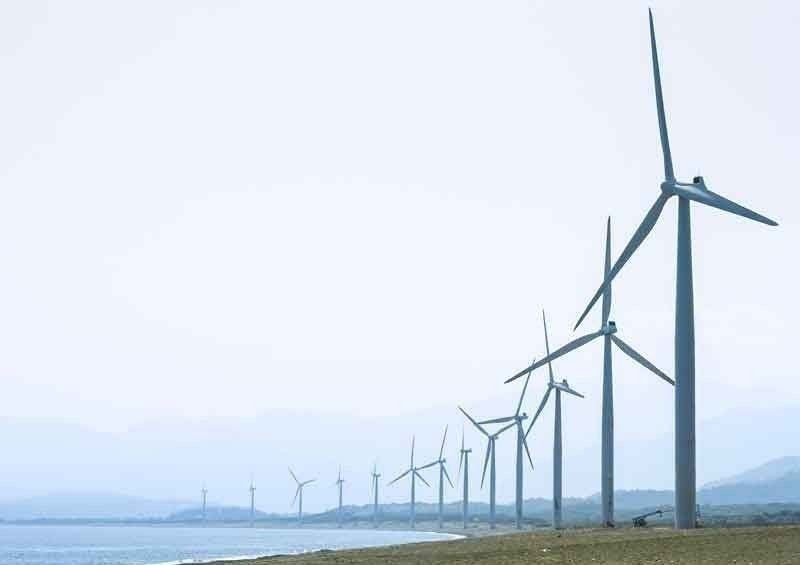P56 billion in the pipeline for Philippines wind projects

Germany’s wpd commits more investments
BERLIN – A leading German wind and solar farm developer is planning to invest P56 billion on top of the P392.4 billion it earlier committed for renewable energy (RE) projects in the Philippines.
President Marcos, together with his economic team led by Trade Secretary Alfredo Pascual, met with wpd GmbH officials here on the sidelines of his three-day working visit, where they talked about the company’s renewable energy projects in the Philippines.
The Department of Trade and Industry (DTI) said wpd is undertaking pre-development activities for five onshore projects in the Philippines, particularly in the Ilocos Region, Aklan, Iloilo, Antique and Bulacan, with an estimated investment value of P56 billion and a combined RE capacity of 565 megawatts, with completion dates between 2027 and 2030.
The DTI said the P56 billion investment is separate from the $4 billion investment deals presented to Marcos during the business forum held for his visit in Germany and outside of wpd’s P392.4 billion investment already registered by the Board of Investments last year.
At present, the wpd is undertaking development work for the establishment of offshore wind farms in Cavite, Negros Occidental and Guimaras, valued at an initial investment cost of P392.4 billion.
This is the single biggest investment from Germany to date, according to the DTI.
Headquartered in Bremen in northwest Germany, wpd specializes in the development and operation of offshore and onshore wind and solar PV projects across Europe, Asia and the Americas. The company operates in 29 countries.
Marcos told wpd officials, led by its CFO Björn Nullmeyer, that the Philippines is seriously pursuing measures and policies to ensure the availability of reliable energy through the utilization of renewable energy sources.
“Thank you for coming in and continuing to have an interest in the Philippines. I think that it is a very fertile investment especially for your industry and business. Like everybody else, we are working very hard to move the share of energy production and fossil fuels to renewable such as wind, solar, hydro and nuclear,” the President said.
“I hope we can avail (ourselves) of these new technologies. All of our wind farms are land-based, we haven’t done anything offshore. We have much to learn from organizations like yours on how to handle it. What would be the capital requirements? What would be the technical requirements?” he said.
Marcos said all investments in the renewable energy sector, including wpd’s project, are vital in his administration’s thrust for climate-friendly initiatives, noting that the Philippines can take full advantage of the new technologies in wind power.
Meanwhile, aircraft maintenance repair and overhaul service provider Lufthansa Technik Philippines (LTP) is spending P8 billion to build a second hangar in Clark.
In a separate statement, the DTI said Pascual met with LTP president and CEO Elmar Lutter to discuss the company’s plan to build a second hangar in Clark amounting to around $150 million or P8 billion.
Construction of the hangar, which can accommodate at least two Airbus A380s, will take two years.
“LTP is considering a partnership with Maharlika Investment Corp. for this project, with initial discussions already underway with Maharlika Fund’s president and CEO Rafael Consing Jr.,” the DTI said.
LTP’s customers will include British Airways, Korean Air, Lufthansa, Emirates and Qantas.
The DTI said Lufthansa also discussed the possibility of a Phase 2 expansion, either in Clark or at new airport sites in Bulacan or Sangley Point.
PUV modernization
Meanwhile, German multinational engineering and technology company Bosch also expressed interest in investing in the Philippines’ public utility vehicle (PUV) modernization program.
In a meeting with Vijay Ratnaparkhe, regional president of Bosch for Southeast Asia and Bosch Singapore managing director here on Tuesday, Marcos welcomed Bosch’s venture in Asia’s transportation sector especially as the country transitions to cleaner technologies such as electric vehicles and hydrogen-powered vehicles.
“Right now, that’s where we are concentrating because the conversion from petrol to hydrogen is also feasible,” Marcos told Bosch officials.
“Actually, our modernization and the running cost per kilometer of a new modern public utility vehicle is much lower than the old diesel jeepneys, taxis and tricycles that we have. So yes, it is the transition that is always the difficult process,” he said.
Looking at the passenger vehicle segment in the Philippines, hydrogen use is more efficient in larger vehicles than small ones, Bosch officials told Marcos.
Marcos also recognized Bosch research and development initiatives and expressed hopes the company could extend support to the Philippines in R&D through technology transfer.
“The R&D has begun already and would be an advantage. We hope that you will bring that technology to the Philippines, transfer the technology to us,’’ he said.
Bosch is headquartered in Gerlingen, Germany. It was founded by Robert Bosch in Stuttgart in 1886.
- Latest
- Trending
























